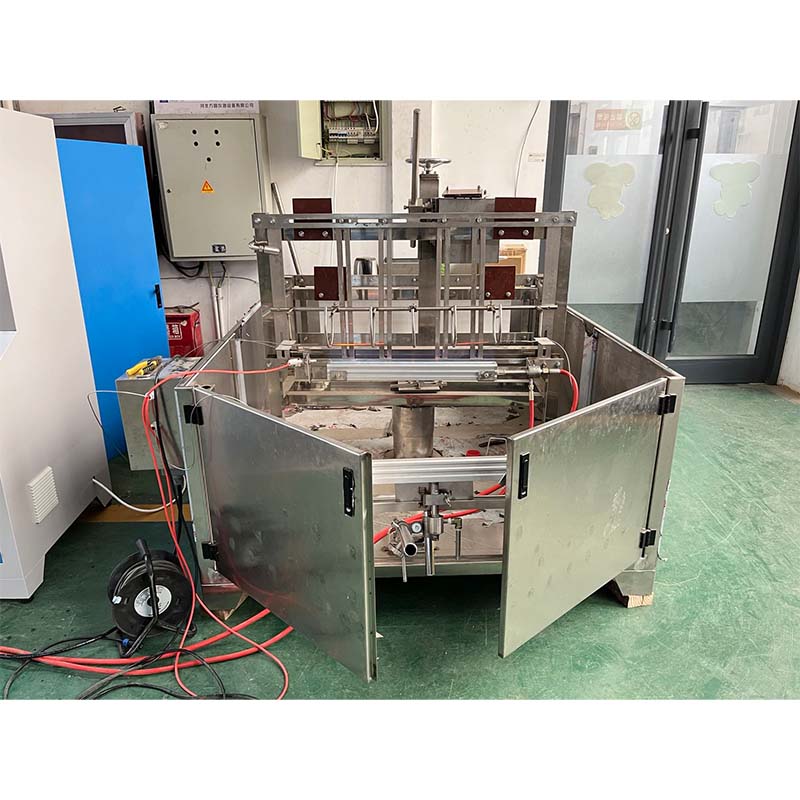Electronic Tensile Testing Machine for Material Strength Assessment and Quality Control
The Importance of Electronic Tensile Testers in Material Testing
In the realm of material science and engineering, understanding the mechanical properties of materials is paramount. Among the various testing instruments available, the electronic tensile tester stands out as a crucial tool for assessing the tensile strength, elongation, and overall ductility of materials. This article delves into the significance of electronic tensile testers, their working mechanisms, and their role in various industries.
Understanding Electronic Tensile Testers
Electronic tensile testers are sophisticated instruments designed to evaluate the behavior of materials under tension. They apply a controlled load to a specimen until failure occurs, measuring critical parameters such as force, displacement, and time. These testers provide precise and real-time data, allowing for a detailed analysis of a material's performance under stress.
The electronic tensile tester comprises several key components the load cell, which measures the force applied to the specimen; the extensometer, which measures the elongation or deformation of the material; and a computer interface or software that processes the data and presents it in a comprehensible format. Modern electronic tensile testers are often equipped with advanced features such as digital displays, automated loading systems, and data acquisition systems that enable efficient testing and analysis.
How Electronic Tensile Testers Work
The operation of an electronic tensile tester begins with preparing the material specimen, which is typically shaped into a dog-bone configuration to ensure uniformity during the test. The specimen is then mounted in the jaws of the tester. As the machine is activated, it gradually applies a tensile load, pulling the specimen apart.
Throughout this process, the load cell continuously measures the force exerted on the specimen, while the extensometer tracks its elongation. The data obtained during the test is recorded and analyzed using specialized software that generates graphs and reports, showcasing the stress-strain relationship of the material. This information is crucial for determining key mechanical properties, including the yield strength, ultimate tensile strength, elasticity, and elongation at break.
Applications Across Industries
electronic tensile tester

The application of electronic tensile testers spans a wide range of industries, including construction, aerospace, automotive, and textiles. For instance, in the construction sector, tensile testing is essential for evaluating the strength of materials such as steel and concrete. This information ensures that structures can withstand the stresses and loads they will encounter throughout their lifespan.
In the automotive industry, electronic tensile testers are used to assess the properties of various materials, including metals and polymers used in vehicle components. Understanding the tensile strength of these materials contributes to the safety and durability of automobiles, helping manufacturers create products that meet stringent safety regulations.
The textile industry also benefits significantly from electronic tensile testing. Fabrics and fibers are tested for their tensile properties to ensure they can withstand the stresses of everyday use. This testing helps producers create textiles with the desired strength and flexibility, ultimately leading to higher-quality products for consumers.
Advancements and Future Trends
The field of material testing continues to evolve with the advent of new technologies. Electronic tensile testers are becoming increasingly automated, with advancements in artificial intelligence and machine learning enhancing their capabilities. These technologies can analyze data more effectively and predict material behavior under various conditions.
Moreover, the integration of non-destructive testing methods with electronic tensile testing is gaining traction. This combination allows for evaluating materials without causing damage, providing a comprehensive understanding of material properties throughout their lifecycle.
Conclusion
Electronic tensile testers play an indispensable role in the material testing landscape. Their ability to provide accurate, real-time data on the tensile properties of materials makes them a vital tool in various industries. As technology continues to advance, these testers will undoubtedly become more refined and efficient, further enhancing our understanding of material behavior and pushing the boundaries of engineering and manufacturing. In a world where material integrity is paramount, the importance of electronic tensile testers cannot be overstated.
-
Why the Conductor Resistance Constant Temperature Measurement Machine Redefines Precision
NewsJun.20,2025
-
Reliable Testing Starts Here: Why the High Insulation Resistance Measuring Instrument Is a Must-Have
NewsJun.20,2025
-
Flexible Cable Flexing Test Equipment: The Precision Standard for Cable Durability and Performance Testing
NewsJun.20,2025
-
Digital Measurement Projector: Precision Visualization for Modern Manufacturing
NewsJun.20,2025
-
Computer Control Electronic Tensile Tester: Precision and Power for the Modern Metal Industry
NewsJun.20,2025
-
Cable Spark Tester: Your Ultimate Insulation Assurance for Wire and Cable Testing
NewsJun.20,2025
 Copyright © 2025 Hebei Fangyuan Instrument & Equipment Co.,Ltd. All Rights Reserved. Sitemap | Privacy Policy
Copyright © 2025 Hebei Fangyuan Instrument & Equipment Co.,Ltd. All Rights Reserved. Sitemap | Privacy Policy
